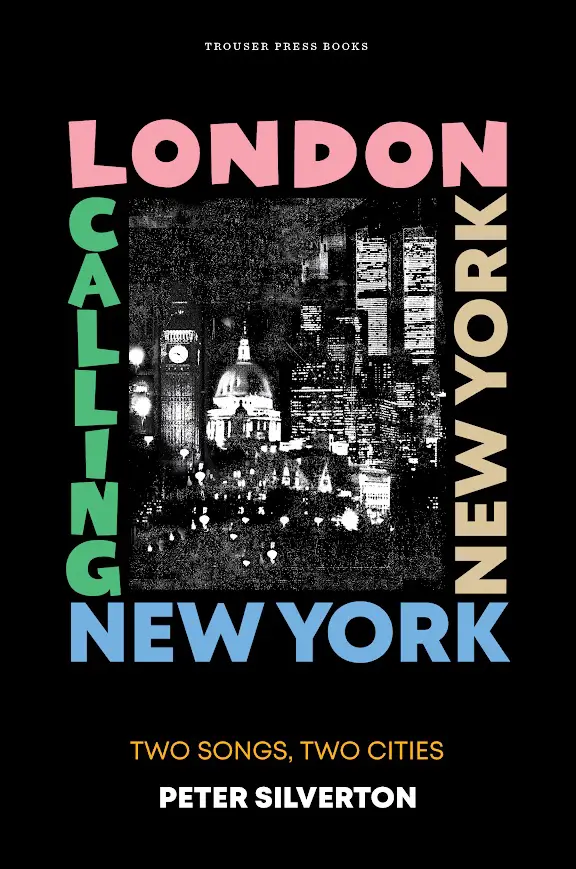London Calling New York New York: Two Songs, Two Cities
Late Journalist Peter Silverton's book binds Sinatra and The Clash
As the late Pete Silverton tells it, he and Joe Strummer were sItting in a pub less than five miles away from where “London Calling” was written when told his pal that it was recorded within weeks of “Theme from New York, New York” being put to tape. The reaction from The Clash guitarist was somewhere near mild disbelief.
That was the fall of 1979. And as it turns out, the band had recorded the song in a studio less than five miles away in the other direction. But that was still an additional million miles or so away culturally from the Sinatra classic. Still, over the next 200 pages of “London Calling New York New York, Two Songs, Two Cities (Trouser Press Books),” Silverton somehow manages to draw a taut thread between the two tracks.
“There are…likenesses – maybe even a kind of brotherhood beneath all that dissimilarity…” according to the author who goes on to see two tracks that “represent two broken metropolises, that are stark declarations of what each city had come to represent.”
“London Calling” was recorded at Wessex Sound Studios, just a few years after the Sex Pistols had used it to record most of what mattered in their skimpy catalogue. It was also home to In The Court of the Crimson King, Queen’s News of the World, and the first four albums in The Wombles’ catalogue. By contrast, Sinatra ironically recorded “New York, New York” in L.A. with a 100-plus piece orchestra inside of the famed Shrine Auditorium.
Having lived in both cities, Silverton pieces his manuscript together via long strands of personal and historical narratives – from the times he spent embedded with The Clash on the road or in the UK, to the day Lou Reed fed him too many margaritas and locked him in a Manhattan bathroom until he finished reading a Delmore Schwartz story.
But for all the time he spent closely watching Strummer and Jones heave towards conquest, his relationship to Sinatra’s final Top 40 hit is mostly laid out in an interview he did with Fred Ebb, the song’s lyricist. Silverton discovers that Ebb and his partner John Kander wrote “three of four” other versions for the film of the same name, which were quickly vetoed. Their response was either professional or incensed depending on who’s telling the story, but once they applied that rejection to their next writing session, it only took them 45 minutes to arrive at the final version.
And where this book mostly succeeds – watching Silverton traipse away from this sort of first person encounter and elegantly slip into an extended register of facts, myths and speculation that hold up his principal themes. It’s how he gets you to get from a detailed retelling of how Strummer wrote “London Calling’s” lyrics in a flat just off the River Thames, to the tired Hollywood backlots where Martin Scorsese filmed a script written about the Big Apple.
Of course there’s a vague whiff of all this reading like some sort of an editorial exercise: “write an extended musical essay about two cities you’re well acquainted with…” But the reality set down here is a different thing altogether. For a writer so close to the end (Silverton lost his battle with brain cancer in 2023), it’s a fairly captivating chronicle of what can be wrung from a life spent trodding the sidelines of pop history. While the writing is smart and nimble, there’s not much value in skipping randomly through its pages. The chief pleasure here is trailing the author around as his account winds in and around the bleak prospects of two towns bleeding out during the late Seventies while these two titanic anthems try to staunch their ruin.
“Sometimes memories are made of lies,” the author writes. And sometimes they are built from considered reflection – the kind that arrives book bound after decades of deliberation and inquiry from a journalist of Silverton’s caliber.







































.png)








